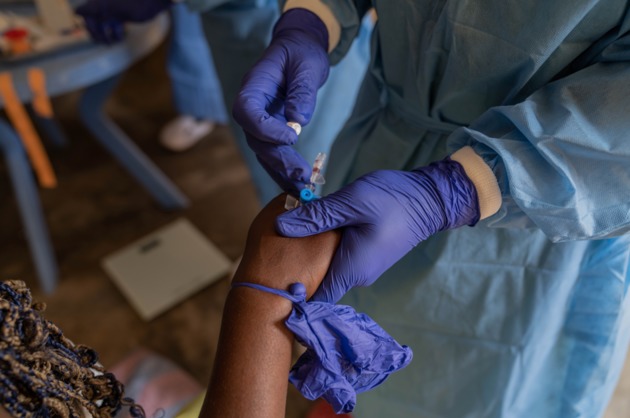
Photo/Xinhua
The Philippines’ Department of Health reported two new confirmed monkeypox cases in Manila on August 26, bringing the total number of cases in the country to 12 since 2022. Additionally, Thailand confirmed its first case of the more transmissible “clade Ib” monkeypox virus, marking the first such case in Asia.
The “clade Ib” variant has been increasingly reported this year. Unlike previous strains that primarily spread through direct or sexual contact, the Ib variant can also be transmitted via respiratory droplets. This has heightened vigilance across several Asian countries, including Japan, South Korea, Singapore, Malaysia, and China.
Daniel Bausch, a professor at the London School of Hygiene & Tropical Medicine and a member of the WHO Global Outbreak Alert and Response Network Steering Committee, emphasized that human behaviour modification is crucial to controlling the spread of monkeypox. He advised avoiding close contact with infected individuals until their lesions have fully healed, typically within three weeks, said Daniel Bausch to NBD in an email interview.
The WHO reported over 15,600 monkeypox cases this year. The Philippines’ new cases involve two men, aged 37 and 32, both exhibiting skin lesions. The country’s Health Minister, Herbosa, noted that the monkeypox outbreak is ongoing, particularly in the Greater Manila area.
The “clade Ib” variant, first identified in the Democratic Republic of Congo, has spread to countries like Burundi, Kenya, Rwanda, and Uganda. Thailand’s first case of this variant was reported on August 22. The WHO has declared monkeypox a “Public Health Emergency of International Concern” due to the risks posed by the Ib variant.
The Ib variant has a 3% fatality rate, with over 60% of known deaths occurring in children under five. In response to the outbreak, several Asian countries have implemented measures to monitor and control the spread of monkeypox.
Monkeypox, a zoonotic disease caused by the monkeypox virus, was first identified in Central and West Africa. Symptoms include a rash, fever, headache, muscle pain, and swollen lymph nodes, typically lasting 2-4 weeks. While most cases resolve on their own, severe cases can occur, particularly in newborns, children, pregnant women, and immunocompromised individuals.
Bausch highlighted that most people do not need vaccination, stressing behaviour modification as the primary method to control the outbreak. Vaccination should be prioritized for high-risk groups, especially in severely affected regions in Africa.
The World Health Organization (WHO) is collaborating with countries and vaccine manufacturers on potential vaccine donations. Through a temporary medical countermeasures network, WHO is coordinating with partners to ensure equitable access to vaccines, treatments, diagnostic tools, and other resources. WHO estimates that an initial $15 million in emergency funding is needed to support monitoring, preparedness, and response activities. Currently, two vaccines recommended by WHO are available for monkeypox prevention.


 川公网安备 51019002001991号
川公网安备 51019002001991号





